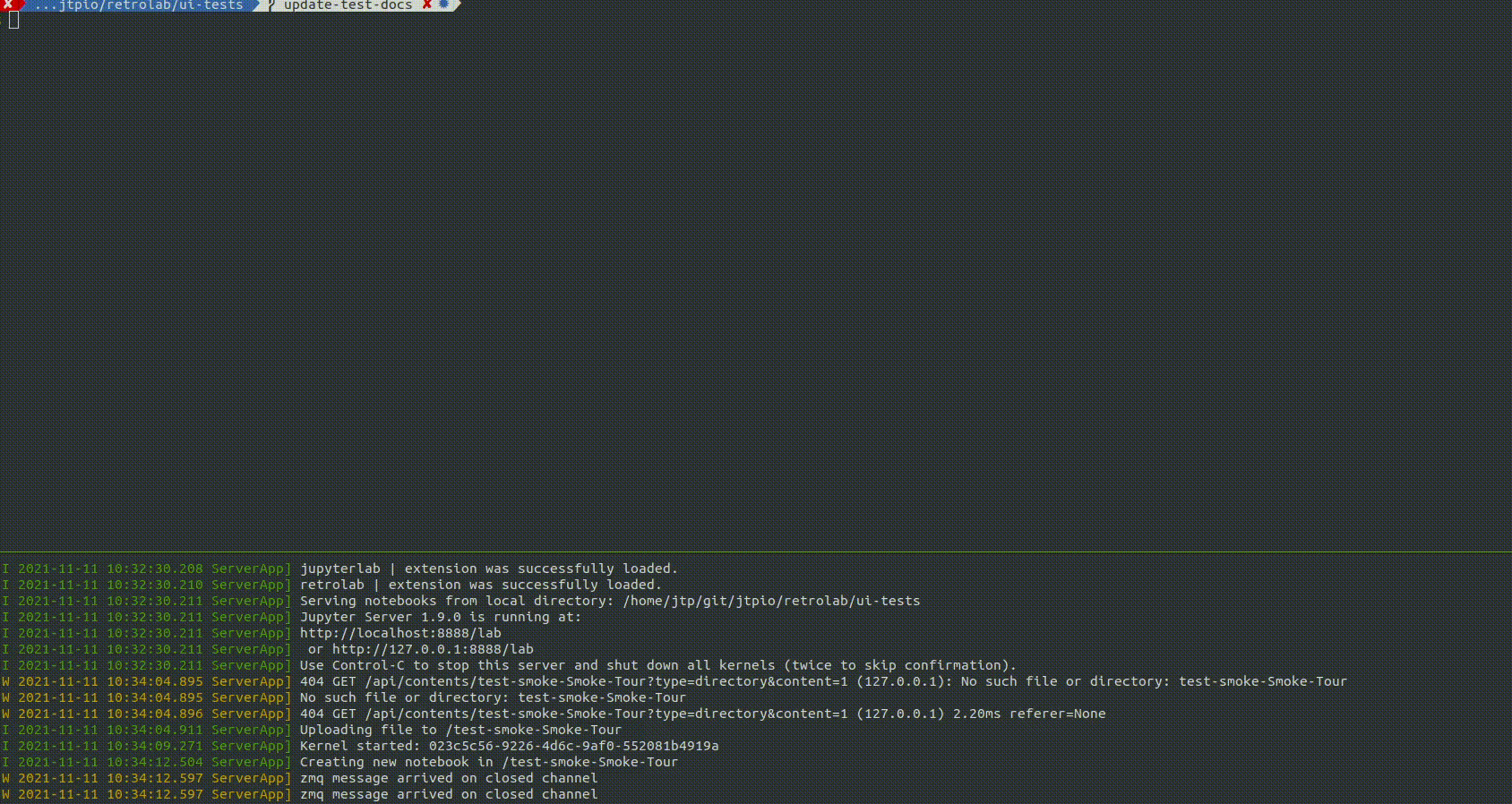mirror of
https://github.com/jupyter/notebook.git
synced 2025-02-17 12:39:54 +08:00
96 lines
2.5 KiB
Markdown
96 lines
2.5 KiB
Markdown
# Contributing to Jupyter Notebook
|
|
|
|
Thanks for contributing to Jupyter Notebook!
|
|
|
|
Make sure to follow [Project Jupyter's Code of Conduct](https://github.com/jupyter/governance/blob/master/conduct/code_of_conduct.md)
|
|
for a friendly and welcoming collaborative environment.
|
|
|
|
## Setting up a development environment
|
|
|
|
Note: You will need NodeJS to build the extension package.
|
|
|
|
The `jlpm` command is JupyterLab's pinned version of [yarn](https://yarnpkg.com/) that is installed with JupyterLab. You may use
|
|
`yarn` or `npm` in lieu of `jlpm` below.
|
|
|
|
**Note**: we recomment using `mamba` to speed the creating of the environment.
|
|
|
|
```bash
|
|
# create a new environment
|
|
mamba create -n notebook -c conda-forge python nodejs -y
|
|
|
|
# activate the environment
|
|
mamba activate notebook
|
|
|
|
# Install package in development mode
|
|
pip install -e .
|
|
|
|
# Link the notebook extension and @jupyter-notebook schemas
|
|
jlpm develop
|
|
|
|
# Enable the server extension
|
|
jupyter server extension enable notebook
|
|
```
|
|
|
|
`notebook` follows a monorepo structure. To build all the packages at once:
|
|
|
|
```bash
|
|
jlpm build
|
|
```
|
|
|
|
There is also a `watch` script to watch for changes and rebuild the app automatically:
|
|
|
|
```bash
|
|
jlpm watch
|
|
```
|
|
|
|
To make sure the `notebook` server extension is installed:
|
|
|
|
```bash
|
|
$ jupyter server extension list
|
|
Config dir: /home/username/.jupyter
|
|
|
|
Config dir: /home/username/miniforge3/envs/notebook/etc/jupyter
|
|
jupyterlab enabled
|
|
- Validating jupyterlab...
|
|
jupyterlab 3.0.0 OK
|
|
notebook enabled
|
|
- Validating notebook...
|
|
notebook 7.0.0a0 OK
|
|
|
|
Config dir: /usr/local/etc/jupyter
|
|
```
|
|
|
|
Then start Jupyter Notebook with:
|
|
|
|
```bash
|
|
jupyter notebook
|
|
```
|
|
|
|
## Running Tests
|
|
|
|
To run the tests:
|
|
|
|
```bash
|
|
jlpm run build:test
|
|
jlpm run test
|
|
```
|
|
|
|
There are also end to end tests to cover higher level user interactions, located in the `ui-tests` folder. To run these tests:
|
|
|
|
```bash
|
|
cd ui-tests
|
|
# start a new Jupyter server in a terminal
|
|
jlpm start
|
|
|
|
# in a new terminal, run the tests
|
|
jlpm test
|
|
```
|
|
|
|
The `test` script calls the Playwright test runner. You can pass additional arguments to `playwright` by appending parameters to the command. For example to run the test in headed mode, `jlpm test --headed`.
|
|
|
|
Checkout the [Playwright Command Line Reference](https://playwright.dev/docs/test-cli/) for more information about the available command line options.
|
|
|
|
Running the end to end tests in headful mode will trigger something like the following:
|
|
|
|

|